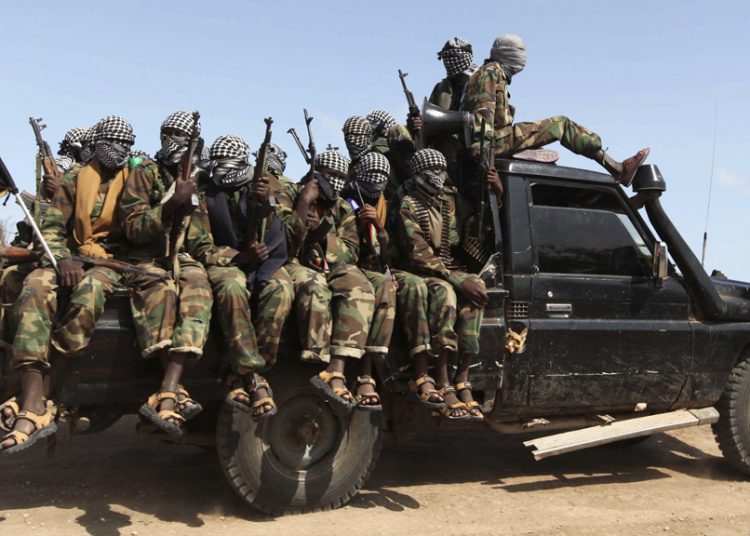Last January, a joint operation by the African Union Mission to Somalia (AMISOM) and U.S. aviation bombed several Al-Shabaab bases near the border with Somalia, leaving more than 50 dead and an indeterminate number of injured. According to intelligence sources quoted by the Kenyan newspaper Daily Post, “the group is in dire need of doctors and medical equipment,” and that would be the reason that would explain the kidnapping of Cuban doctors Landy Rodríguez Hernández and Assel Herrera Correa in Mandera, a town on the border with Somalia where they were serving under an agreement between the governments of Nairobi and Havana.
In that case it would be the first action carried out for that purpose by this affiliate of Al-Qaeda, the protagonist of a history of kidnappings for money, extortion of international NGOs, drug trafficking, donations from abroad and the imposition of taxes in the territories controlled by them as forms of financing, among other actions in that sense.
In the area where they penetrated on April 12, local doctors had taken flight due, precisely, to security concerns. There were not many other options then for Al-Shabaab to be able to solve the problem of caring for their wounded terrorists. If this hypothesis is valid, as it seems, it would not have been, therefore, an express and deliberate action taken against Cubans because of their nationality. Both doctors, in addition, enjoyed recognition in a place with high rates of maternal/infant mortality and preventable diseases. They were also praised on television.
Al-Shabaab´s kidnappings: chronology of the wait
On Saturday, May 4, after more than 20 days of that operation, terrorism has returned to that area, particularly in Hareri Hosle, a village on the Kenyan-Somali border near the Mandera-Lafei-Elwak route, closed by the government in 2015 after an Al-Shabaab operative killed 28 people abducted in a bus bound for the capital.
About 30 of their troops entered the village, ransacked a grocery store and took some weapons with the balance of two wounded police reservists. According to reports, the northeastern regional chief, Mohamed Birik, apparently more interested in defending his post than trying to resolve the problems, said that the security agencies were in control of the area, despite some reported incidents, which marks a difference with what the governor of Mandera, Ali Roba, asked himself after the kidnapping of the two Cubans.
“Honestly, how is it possible that we have more than 1,000 security officers in a small city like this one? However, such an incident can occur in broad daylight. These are the questions we must ask ourselves. It seems strange to me.” It was evidently an allusion to the collaboration networks within the Kenyan police and security forces, and also the reason why the driver of the Cuban doctors is still under arrest and under investigation, despite reports that he would be under arrest for only fifteen days in a Nairobi unit.
As for the doctors, the authorities affirm that for security reasons, no public information has been given out. But a week ago Birik himself declared that “a lot of progress had been made in the field of rescuing them,” perhaps an information involving the work of the elders of Mandera, sent at an early time to negotiate the two doctors’ release with their Somali counterparts.
On the same day that these terrorists entered Hareri Hosle, Cuban Minister of Public Health José Ángel Portal Miranda tweeted that he had had a new conversation with his Kenyan counterpart “as part of the efforts made by our government for the safe return of the two kidnapped Cuban doctors.”
Almost two years ago, Kenyan elite forces tried to rescue Kenyan Secretary of Public Works Mayra Mariam El-Maawy from her captors, along with five other officials. Unfortunately, the operation was not a success.
Breaking news reported that combined military forces from Kenya and Somalia took the border town of Barire as part of an operation aimed at rescuing the Cuban doctors. Five Al-Shabaab commanders surrendered and are being interrogated in the Somali capital. They are supposedly hiding the doctors somewhere in Barire.
The head of the Somali army, General Dahir Adan Elmi, congratulated the soldiers and described the liberation of the town as a blow to the members of Al-Shabaab. The lower region of Shebelle, where it is located, has been under the control of Al-Shabaab for several years.
“I want to congratulate the National Army of Somalia and the troops of AMISOM in Kenya for the work. The capture of the city of Barire is strategic and a blow to Al-Shabaab,” he said.










